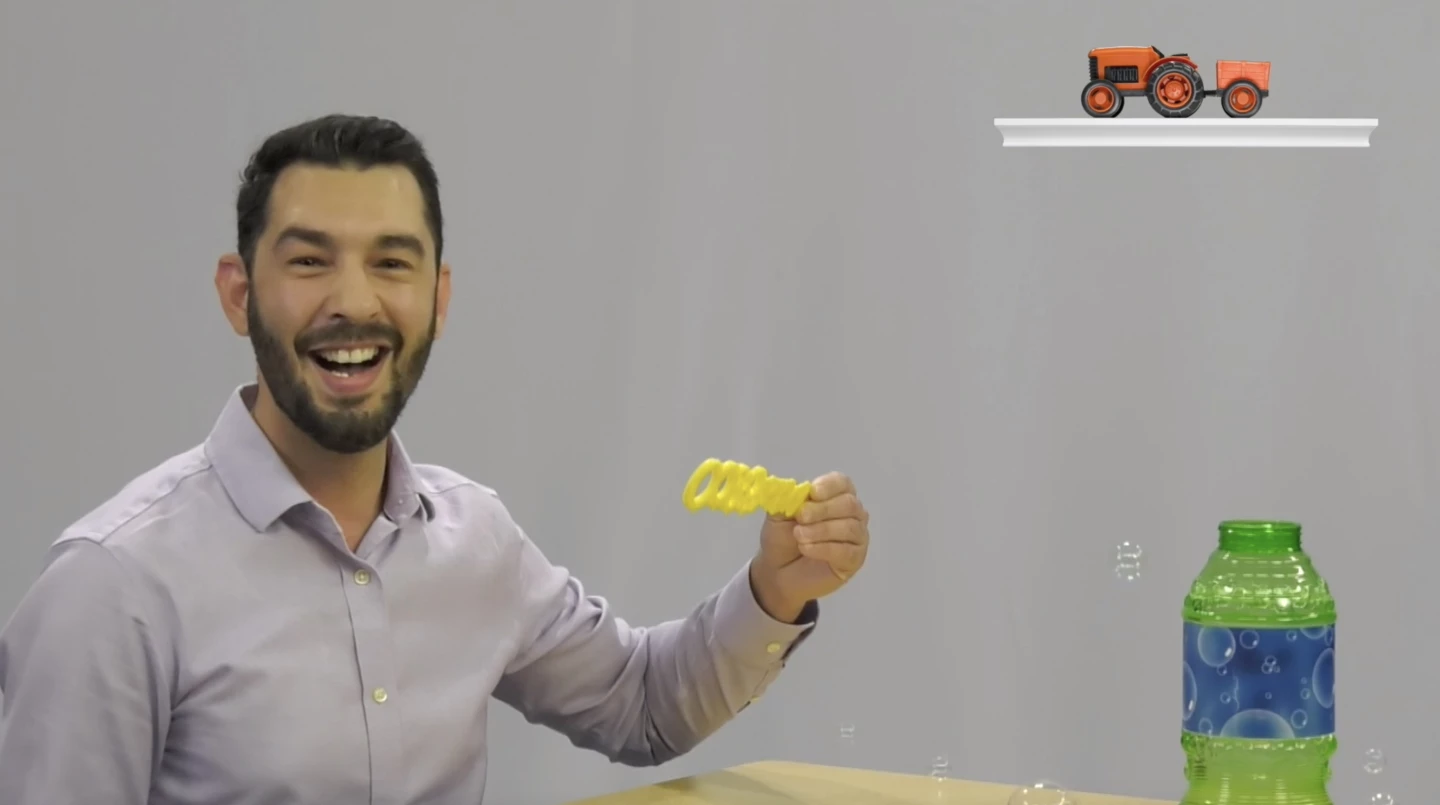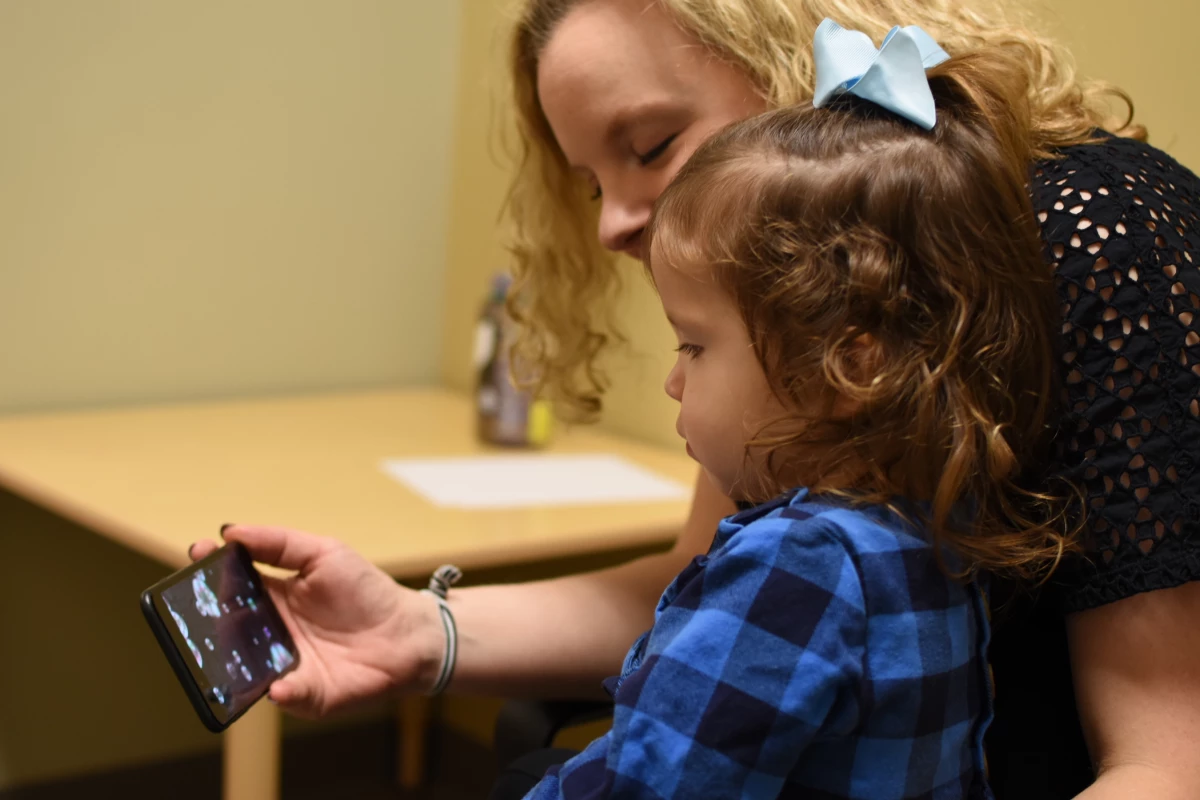Although it's certainly best to start addressing autism as early as possible, the disorder is often difficult to detect in young children. A new iOS app has been designed to help, by tracking a child's eyes as they watch videos.
Developed by scientists at North Carolina's Duke University, the app utilizes the front camera of an ordinary iPhone or iPad.
In a process that takes less than 10 minutes, a young viewer is presented with short video clips that depict people playing with toys such as a spinning top or a pinwheel. The person is always displayed on one side of the screen, while the toy is located on the other. By tracking the overall direction of the child's gaze, it is therefore possible to ascertain if they're focusing more attention on the people in the videos, or on the toys.
This is an important factor, as previous research has determined that babies or toddlers who are at risk of autism spectrum disorder (ASD) tend to pay more attention to things, and less attention to people. And while there have been other diagnostic systems that similarly utilized eye-tracking technology, this is reportedly the first to use easily accessible consumer electronic devices.

The app has already been tested on a group of 993 toddlers, with promising results. That said, the scientists are continuing to perform validation studies.
"We hope that this technology will eventually provide greater access to autism screening, which is an essential first step to intervention," says Dr. Geraldine Dawson, co-senior author of a paper on the research. "Our long-term goal is to have a well-validated, easy-to-use app that providers and caregivers can download and use, either in a regular clinic or home setting."
The paper was recently published in the journal JAMA Pediatrics.
And as a side note, this isn't the first Duke-developed autism app. Previously, in collaboration with Apple ResearchKit and the Office of Naval Research, the university created a program that screens for ASD by analyzing a child's facial expressions.
Source: Duke University





